Sawflies / Horntail Wasps
Sawflies are represented by several families of stingless wasps. They are thought to be the most primitive of the wasps because of their complex wing venation and because their larvae are vegetarians. Females use a sawlike organ to deposit their eggs in leaves or twigs, hence the name Sawfly. There are about 730 species of Common Sawflies (Tenthredinidae) in North America. The larvae resemble caterpillars of butterflies or moths. Adults appear to mimic stinging wasps. Webspinning Sawflies (Pamphiliidae) live as larvae in webs or rolled up leaves. Argid Sawflies (Argidae) are recognized by the long terminal segment of the antennae. Most larvae feed on leaves of the host plant.
Horntails (Siricidae) are large, cylindrical wasps that look threatening but are actually harmless. The female drills into dead or dying trees to deposit her eggs and also injects a wood-rotting fungus to make it easier for the larva to chew tunnels in the tree. The larvae are wood borers and are preyed upon by Ichneumon wasps. There are about 19 species of Horntails in North America.
Disclaimer: The content of NatureSearch is provided by dedicated volunteer Naturalists of Fontenelle Forest who strive to provide the most accurate information available. Contributors of the images retain their copyrights. The point of contact for this page is: Loren Padelford.
-
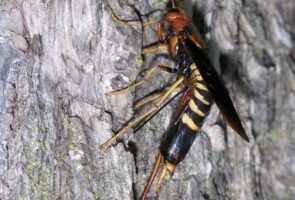 PIGEON HORNTAIL
PIGEON HORNTAIL
-
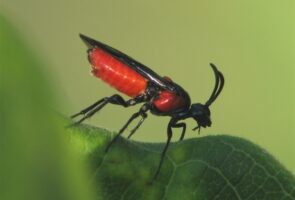 POISON-IVY SAWFLY
POISON-IVY SAWFLY
-
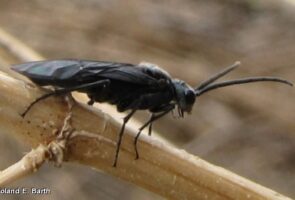 DOLERUS SP.
DOLERUS SP.
-
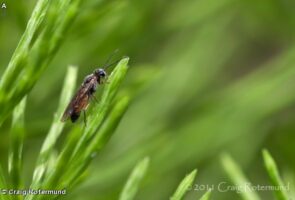 DOLERUS SP.
DOLERUS SP.
-
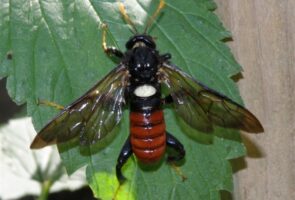 ELM SAWFLY
ELM SAWFLY
-
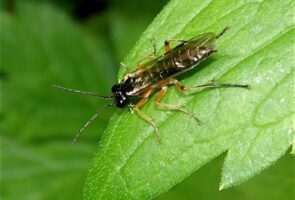 TENTHREDO SAWFLY
TENTHREDO SAWFLY
-
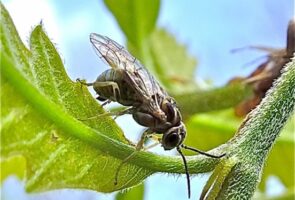 PERICLISTA SP.
PERICLISTA SP.
-
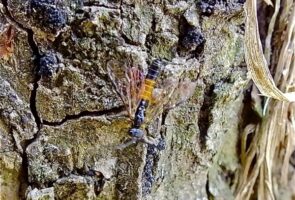 STRONGYLOGASTER IMPRESSATA
STRONGYLOGASTER IMPRESSATA
-
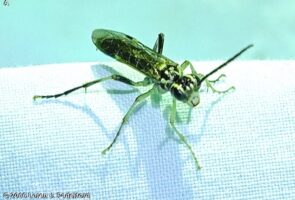 TENTHREDO VERTICALIS
TENTHREDO VERTICALIS
